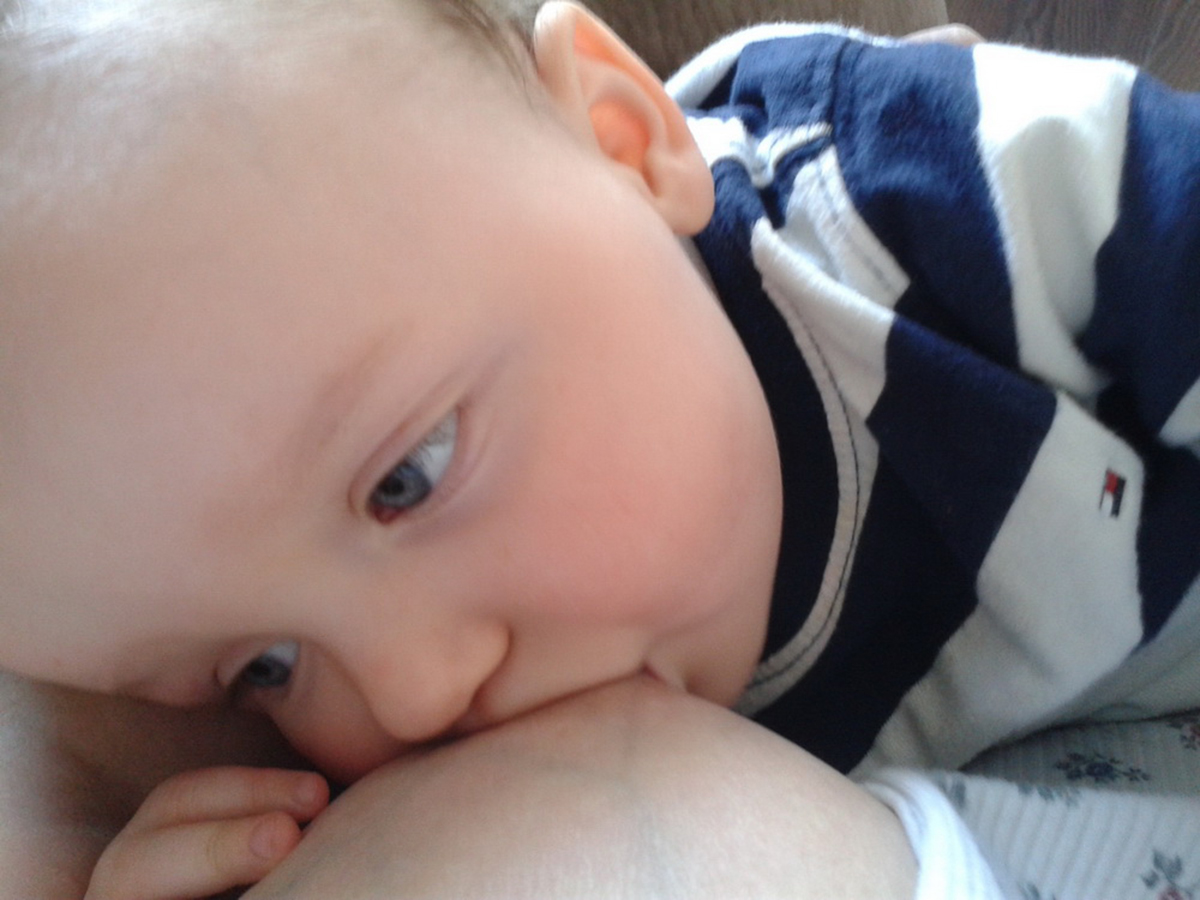“Breastfeeding is the normal way of providing young infants with the nutrients they need for healthy growth and development. Virtually all mothers can breastfeed, provided they have accurate information, and the support of their family, the health care system and society at large.”

This is the first thing anyone accessing the World Health Organization's online breastfeeding information will see. Why quote that paragraph, right at the beginning of an article? Because that single paragraph carries a lot of power.
It tells us some key things that many people don't know about breastfeeding:
-
Breast is not, actually, best. It is normal. Formula is an inferior alternative that serves women and babies well when the real thing is not available.
-
Breast milk provides babies with all the nutrients they need.
-
Almost all moms can breastfeed. They may run into some beginners' troubles, but most can be resolved with a little information and support.
-
Society has an important role to play in promoting breastfeeding. It's not all up to individual mothers!
Many mothers to-be worry whether they'll be able to breastfeed. A lack of knowledge and a lack of support are two key reasons the breastfeeding rates are so low in many countries. Did you know that less than 40 percent of babies under six months are exclusively breastfed on a global scale?
The World Health Organization and UNICEF recommend that all mothers (with a few notable exceptions, like women with HIV) breastfeed their babies exclusively for six months, and along with other foods after that, until the child reaches age two — and beyond, if you want to. They also strongly advise mothers to breastfeed their children on demand, so when they want to nurse and not on a predetermined schedule.
Before we look at all the different reasons breast is still best (normal!) for both mothers and babies, we'll tackle some of the more common breastfeeding complications. You may or may not be surprised that a perceived low milk supply is the most common problem. In practice, it is hard to asses whether you truly have a low supply or not — but if your baby is satisfied after nursing and is growing, you most likely to simply have enough milk. Worries about not having enough milk are more a cultural than an actual problem.
The second most common breastfeeding complication is breast pain, then engorgement (breast fullness), followed respectively by nipple pain, blocked milk ducts, and mastitis (an infection of the breast). These issues can almost always be resolved relatively easily, if a mom has adequate information and support. This support may come from a family doctor, midwife, a lactation consultant, and even from peer-to-peer breastfeeding support groups including the La Leche League.
Even women who do run into some initial difficulties will find that sticking with breastfeeding is most likely absolutely worth it. Now, we'll get to why.
Breastfeeding — The Benefits For You And Your Baby
Breastfeeding is the best for your health, and for your baby's. But because of the common perception that breastfeed is hard, we'll start with some nice practical benefits that are great reasons to nurse your baby:
-
Breastfeeding is free. Formula is really expensive.

-
Breastfeeding is hassle-free too. Your breasts always come with you, and your baby's food is always fresh and readily accessible at the right temperature. You never have to worry that you may run out.
You never have to make any late-night trips to the store to get your baby food. And, if you co-sleep with your baby, you never even have to get up to feed your baby, and you'll get more sleep than you would if you formula fed.
-
Breastfeeding promotes mother-baby bonding.
-
Breastfeeding helps protect your baby from infections and diseases, because of antibodies present it it.
Research into the benefits of breastfeeding — and how breastfeeding compares to even the latest advances in baby formula — is always ongoing. The benefits that we currently know about may not be the only ones. So far, studies have established that breastfed babies have a high IQ on average, have a lower chance of being obese later in life, and have lower cholesterol as adults. These babies are less likely get get ear infections and upper respiratory infections, and are less prone to develop the flu or pneumonia.
Breastfed babies have a lower risk of diarrhea (particularly significant in developing countries, where diarrhea can kill), and a lower risk of developing digestive disorders such as Crohn's Disease if they were nursed exclusively for six months. But there's more. Breastfed babies have a lower risk of eczema, juvenile rheumatoid arthritis, and urinary tract infections.
Does that sound good, so far? Just imagine wording these facts differently. You'd start with “formula-fed babies tend to have a lower IQ, a greater chance of being obese...” and continue from there. The exercise may terrify you.
Breastfeeding also has some interesting advantages for moms. Most significantly, breastfeeding lowers your risk of getting breast cancer and ovarian cancer. The longer you breastfeed, the more your risk decreases. Because breastfeeding uses around 500 calories a day and breastfeeding moms tend to watch what they eat for their babies' sake, these moms are also more likely to return to their pre-pregancy weight sooner.
And there you have it. Breast is still best. Breast milk is the normal form of infant nutrition, especially made by moms for their babies. An individual mom's milk is composed specifically to meet her baby's need — for as long as they both need it to.
Are you a pregnant woman who really wants to breastfeed, or a mom who is running into some difficulties with nursing? Please do go back and re-read the first section, to remind you that you may need support. That support is available. Are you a mom who genuinely cannot breastfeed? Formula was made for moms like you, and babies like yours. There is, therefore, no need to guilt-trip yourself. You may like to look into the availability of donor breast milk to convey some of the benefits of breastfeeding to you baby, though.
- Photo courtesy of Carolyne Dubé by Public Domain Pictures : www.publicdomainpictures.net/view-image.php?image=43531&picture=breastfeeding
- Photo courtesy of 44068064@N04 on Flickr: www.flickr.com/photos/44068064@N04/6658052801



Your thoughts on this